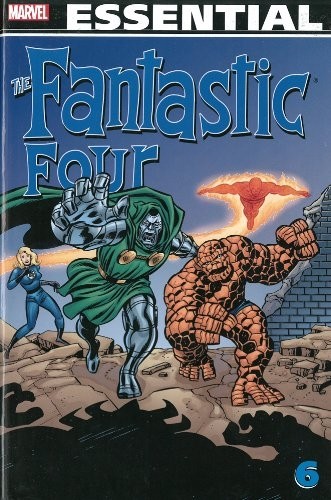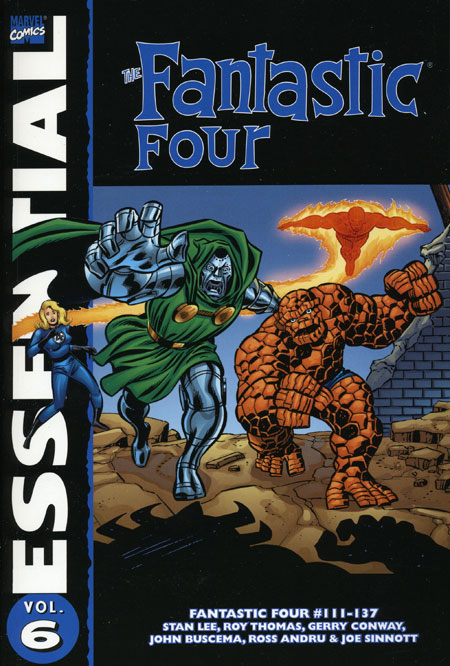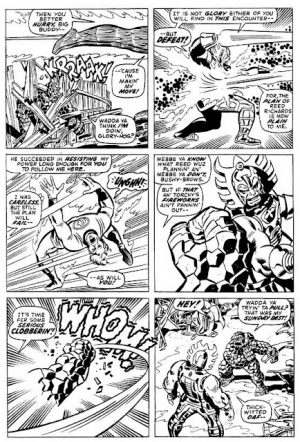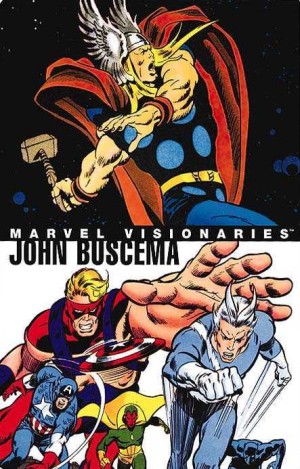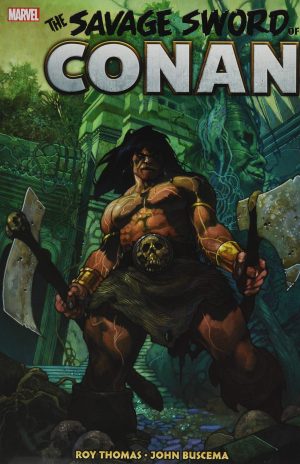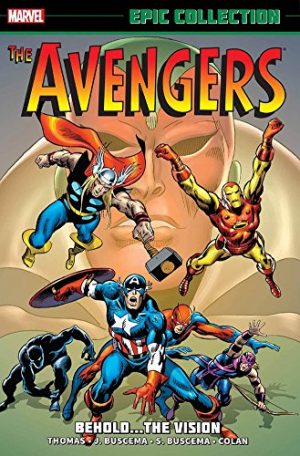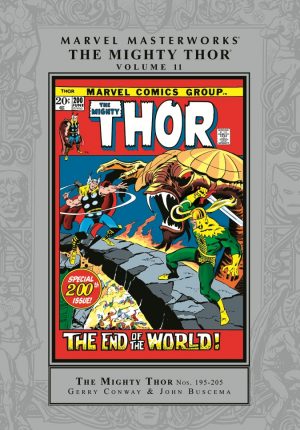Review by Karl Verhoven
Essential Fantastic Four Vol. 6 is somewhat the hodgepodge for a series that once had some justification for running a banner proclaiming it “The World’s Greatest Comic Magazine!” Stan Lee had relied on Jack Kirby for so long that when Kirby’s departure forced him into assuming a greater portion of the creativity he struggled to produce anything approaching the compelling superhero dramas they produced together, and resorted to retreading old ground. However his successors are also patchy, turning out more poor or ordinary stories than thrillers, although in Gerry Conway’s case his lapses aren’t seen until Essential Fantastic Four Volime 7.
That everything isn’t as good as it might be is disguised by the illustrative polish of John Buscema’s art. His dynamism is less bombastic than Kirby, but he’s equally skilled in supplying action that has the pages turning, and supplies memorable portraits. Because Joe Sinnott inks Buscema’s pencils and for so long did the same for Kirby, at times there’s an interesting halfway fusion of the two natural styles. Buscema is sorely missed on the few stories he doesn’t draw.
Lee’s best here amounts to two sequences. Planet-devouring Galactus probably hits an all-time low when rampaging through an amusement park bellowing “Meddlesome humans! You sought to deceive me!”, but Lee pulls things back with a clever final chapter that’s tense all the way through to a twist on the final page. The other triumph is a more sustained attempt to introduce something different. The Over-Mind’s appearance includes some recycling, but also novel ideas like his wiping the FF’s minds so they don’t remember him, an interesting origin and a desperate finale in which a different Fantastic Four win the day. That’s written by Archie Goodwin, whose subsequent Diablo story fails to shine, but who supplies an inventive Thing solo tying into that.
In this collection Roy Thomas never tops his first outing. He’s fence-sitting in refusing to name South Africa as the regime that’s institutionalised racism, but otherwise the story of the Black Panther’s capture and rescue by the Thing and the Human Torch sends out all the right messages. It certainly survives the test of time better than Thundra does, a strident feminist who believes men beneath her. Thomas’ other fine moments are the Thing ambushed by the Frightful Four in a construction yard, and the opening chapter of a story channelling the good and bad of the 1950s into a futuristic scenario. It splits the FF into two opposing factions and the weirdness of a changed world still has a novelty even if some of Thomas’ character moments don’t stand up, especially the fragile reasoning for earlier splitting Reed and Susan Richards. It’s to freshen the FF by having Medusa stand in, and that turns out to be interesting.
Conway completes the 1950s outing well, but before then has delivered his own strangeness in returning two then-forgotten foes in Dragon Man, interestingly used since, and Gregory Gideon, subsequently left in obscurity. It’s indulgent, but satisfying, with a surprising emotional payoff, and among the best of this patchy collection.
These stories are spread across three colour Masterworks volumes of the Fantastic Four, Volumes 11, 12, and 13, but these black and white pages have crisp reproductions, and supply the same thrills at a budget price. Latterly the Epic Collection Annihilus Revealed features roughly the final third of this collection with the colour restored.
